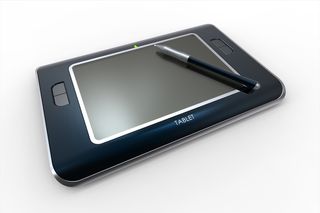HP confirms Palm and Windows slates
HP has confirmed that slate devices are in the pipeline, as speculation turns to Android.

HP has confirmed that it will enter the slate market with a Windows-based tablet for the enterprise space and a Palm webOS device.
The company statement made no mention of support for Google's Android platform.
The statement reads: "HP plans to use webOS from its recent Palm acquisition, as well as Windows 7 from Microsoft, for this category. WebOS products will span across smartphones, slates, netbooks and printers. Deployment of the Windows 7 slate will target the specific needs of select enterprise markets."
The statement confirms that webOS will be a major platform for HPs hopes to reinvigorate its mobile devices. Its move from iPaq PDAs to iPaq phones faltered when the Microsoft Mobile operating system was surpassed by Apple's iPhone.
By describing the Windows 7 tablet as being an enterprise model, the implication is that it will probably be more expensive than the webOS slate. Microsoft's operating system is very large for a tablet device so it will either have been reduced in size, or will be dockable.
A slate that can be docked and used with a conventional keyboard would allow it to be used on the desktop with standard Windows applications, such as the Office suite. Substantial word processing on a virtual keyboard would not be desirable.
This would not be the first slate HP has made as its first foray into tablet PCs in 2002 was a slate.
Get the ITPro. daily newsletter
Receive our latest news, industry updates, featured resources and more. Sign up today to receive our FREE report on AI cyber crime & security - newly updated for 2024.
The emailed statement from HP was supposed to quell mounting speculation but it has actually fanned the flames. Web speculators were so sure of an Android slate after filings were found of drawings for an HP-badged product called the eStation Zeen.
Zeen was taken to be the last syllable of magazine which implied a device like an e-book reader or iPad. It can only be assumed that HP has no plans and may be rethinking its strategy in the light of the flood of products expected in the iPad space. Alternatively, it could be taking time out to port webOS onto any existing prototype.




